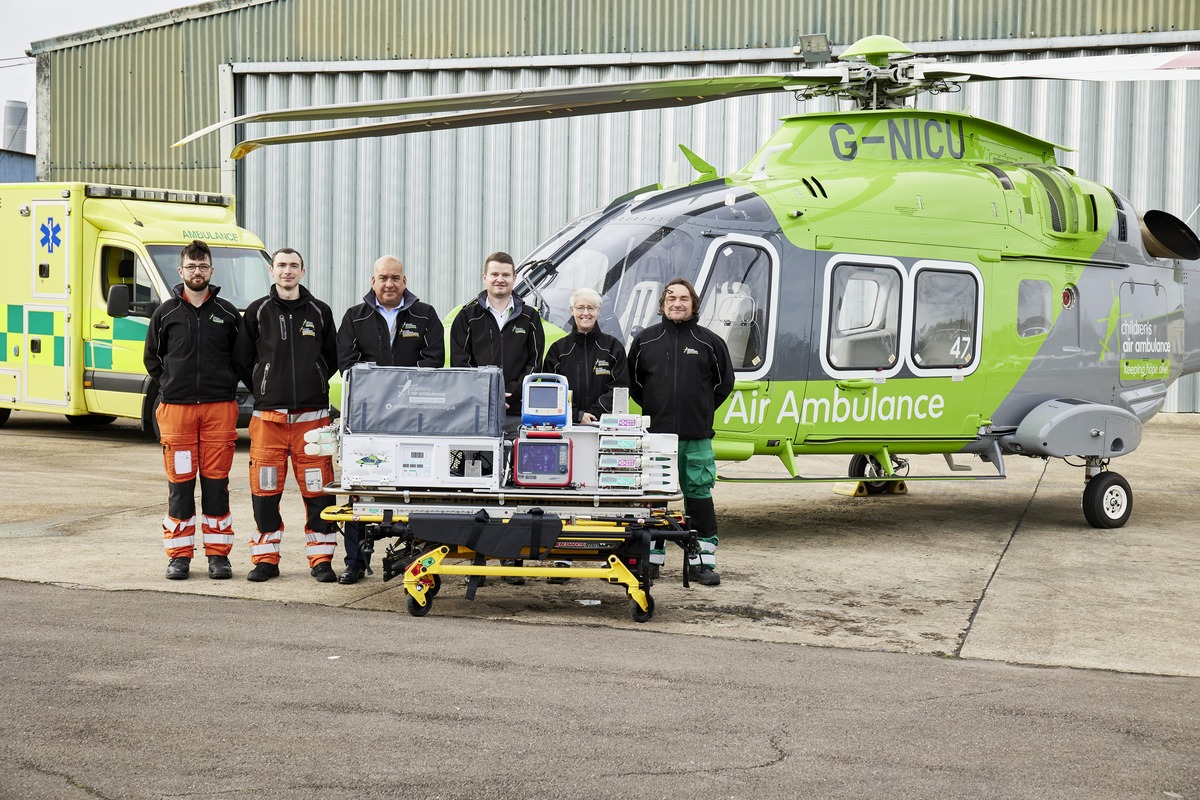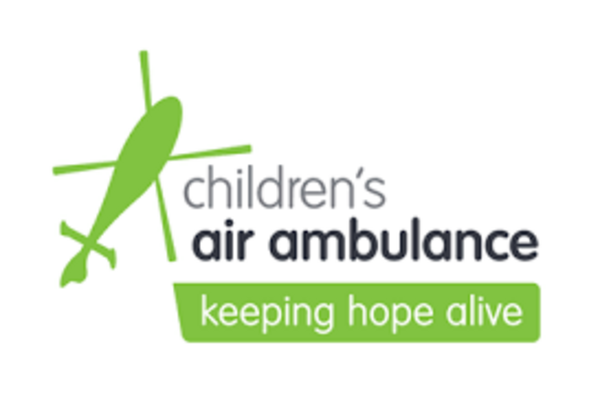The Children’s Air Ambulance (TCAA) has introduced England’s first incubator on a rotary-wing aircraft to assist specialist NHS transport teams during lifesaving flights.
The national transfer service provides the only intensive care aircraft in the country dedicated to transferring critically ill babies and children, at a high and safe speed, from local hospitals to specialist paediatric and neonatal treatment centres.
Thanks to the support of public donations, the charity has designed and developed three bespoke Neonatal Transport Systems which have been provided to specialist NHS transport teams free of charge across England to enhance patient care.
The charity, NHS Clinical Partner Teams at Embrace Yorkshire and Humberside Infant and Children Transport Service (Embrace) which is part of Sheffield Children’s NHS Foundation Trust, Bristol's Newborn Emergency Stabilisation and Transfer (NEST), Southampton Oxford Neonatal Transport (SONeT), International Biomedical and Gama Aviation collaborated on a bespoke design, bringing three Neonatal Transport Systems onboard its brand new AgustaWestland 169 aircraft - now provided by Sloane Helicopters Ltd.
The new and bespoke TCAA Neonatal Transport Systems have been designed with input from leading neonatal transfer clinicians to ensure they are able to provide outstanding care in the air. In addition to the incubator, the system includes a Patient Monitor, Ventilator, Suction Unit, four Infusion Devices, Oxygen, and specialist Nitric Oxide Therapy.
The Children’s Air Ambulance’s new AW169 aircraft large cabin interior allows access to both sides of the Neonatal Transport System, and with excellent visibility from all four seats, it means more specialists’ eyes can monitor the patient – as well as the parent.
This space means that a parent doesn’t have to move if a clinician needs access to care for their child, meaning they can remain close to their child the entire flight, putting their mind at ease.
The helicopter also has plentiful medical air and oxygen supplies, and easily controllable heat and light levels, and with the onboard power, it reduces the reliance on batteries – making it a very efficient enhancement the national service provides.

“Having the incubators will mean we can fly many more babies than we currently can. Before now, we were unable to safely use the helicopter to transfer our smaller infants, who need higher levels of support. This incubator means we will be able to get the smaller more fragile babies to the specialist services they need more quickly, reducing the anxiety and worry of the parents, and ultimately reducing the time taken for the infants to get the specialist support they need, expressed Lead Nurse for NEST, Patrick Turton.
“We will also be able to get babies and families back together after they've had this specialist input, avoiding long road journeys, and reducing the time spent outside of hospital, so we’re really looking forward to continuing to work closely with TCAA to be able to provide this level of transport to support more babies and their families,” he added.
Speaking on behalf of SONeT, the first team to use the incubators for two vital transfers in the South already, Dr Sarah Davidson, neonatal consultant at University Hospital Southampton and SONeT Wessex lead said: “The incubator system will allow SONeT to move patients who were previously too small or needed additional support and we are very pleased to say we have already been able to fly using the new incubator and this was a patient who previously would not have been able to be flown to us for specialist care.
“Working with TCAA provides so many benefits including reduced transfer times, reaching patients more quickly to deliver expert care and treatment at the scene, bringing babies closer to home when a mother delivers in another part of England, moving patients as an emergency to specialist neonatal units and repatriating them back to local units.
“We look forward to continuing to partner with the TCAA to provide the best possible care for our babies and their families and make sure they get the care they need safely and as soon as possible.”
The Children’s Air Ambulance charity is continually looking at ways to increase support to the NHS and the clinical teams it works alongside. By bringing these new incubators on board, the service is really leading the way in paediatric and neonatal aeromedical transfers.
“The design and development of these incubators has been a long and complex project; the result of close collaboration between TCAA, the clinical partner teams and the aviation and engineering specialists. As a nurse with twenty years of flight transport experience, I am excited to be close to using the best flight incubator I have ever seen. Embrace are thrilled to have access to a truly state-of-the-art asset, built to the highest quality and whose function exceeds our original brief,” expressed Embrace Transport Nurse Educator, Ian Braithwaite.
Alfie Daly, Head of Operations for the Children’s Air Ambulance said; “I am delighted that we have now introduced our bespoke Neonatal Transport Systems so we can transfer neonatal patients and support our NHS teams to provide the best possible care. A tremendous amount of work has gone into this project which is fundamentally based on NHS clinicians’ requirements to ensure they have everything they need to provide the best possible patient care. It’s a huge achievement for the Children’s Air Ambulance and a lifesaving piece of equipment.”



